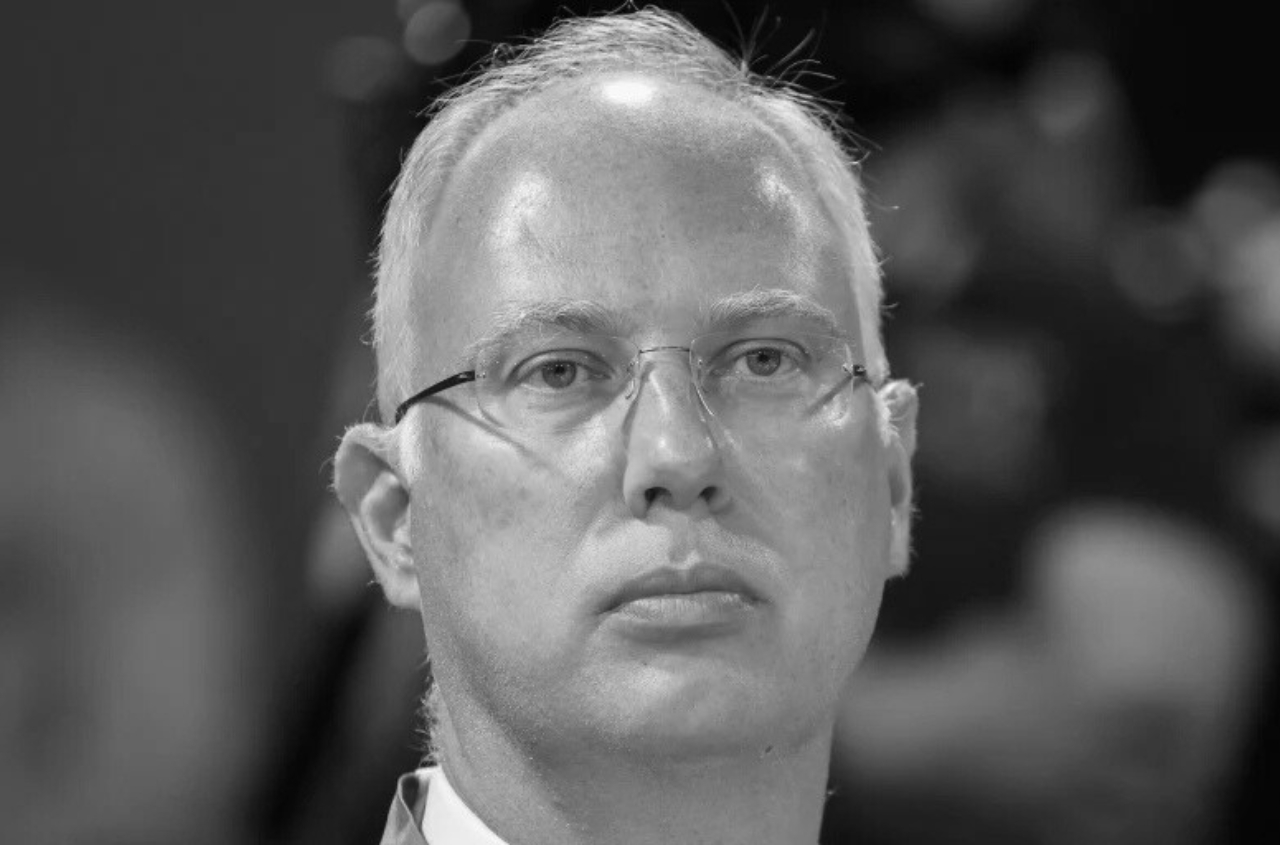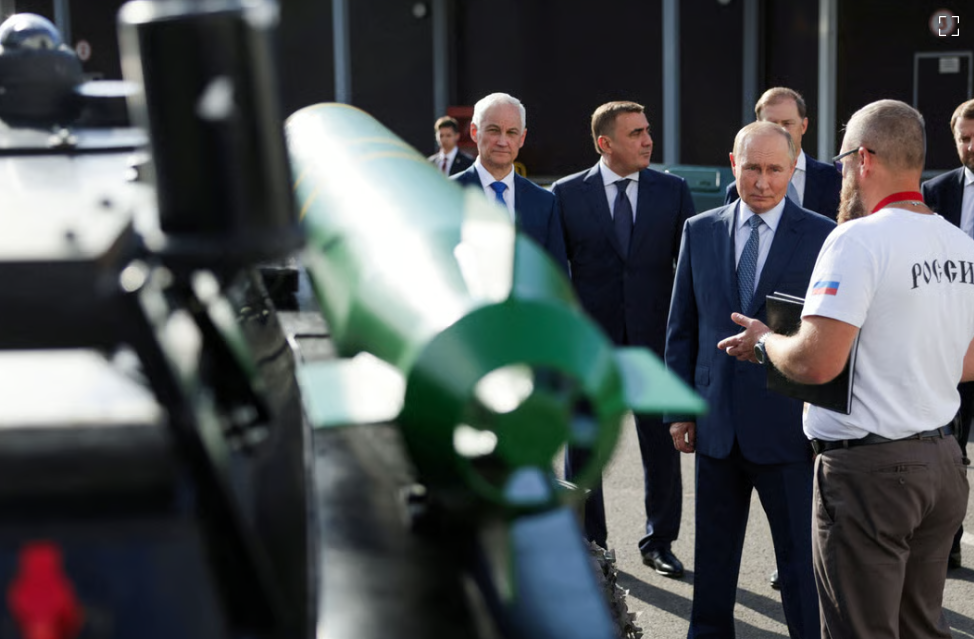Vladimir Putin’s special envoy Kirill Dmitriev has lost influence in the Kremlin and has shifted from a diplomatic role to acting as a media tool, attempting to maintain a presence on the political stage through propagandistic initiatives, according to experts from the Robert Lansing Institute (RLI).
His diplomatic failure is now considered definitive, yet Dmitriev seeks to regain his standing by promoting “peace solutions” to end Russia’s war against Ukraine. Not long ago, he was regarded as a rising star within Putin’s circle. In February 2025, Dmitriev was appointed special representative for investment and economic cooperation, included in a delegation for negotiations with the U.S., and received authorization to travel to Washington. The Kremlin expected him to establish contact with the Trump administration and help ease sanctions imposed on Russia since 2014, allegedly leveraging his connections at Goldman Sachs.
However, expectations were unmet. Dmitriev proved to be either a disappointment or an international lightweight. His October trip to the U.S. effectively marked the end of his diplomatic career. Amid Trump’s sanctions on Rosneft and Lukoil, the Kremlin sent Dmitriev “to manage the situation,” while he publicly claimed he was visiting “at the invitation of the American side.” In reality, all levers of influence were in Washington’s hands. The U.S. administration deliberately ignored the Russian envoy, delivering another humiliation to Putin. Dmitriev’s interactions were limited to a few meetings with U.S. officials, including Republican Congresswoman Anna Paulina Luna and President’s special representative Steve Whitcoff. The main outcomes of his mission were media interviews emphasizing that pressure on Russia “does not work,” that the U.S. should “respect Moscow’s interests,” abandon a values-based approach, and adopt pragmatic economic projects.
One of the strangest elements of his trip was distributing boxes of chocolates with Vladimir Putin quotes — a gesture widely perceived in the U.S. as mocking. Promoting the usual claims that sanctions “do not affect” Russia’s economy, Dmitriev also interfered in U.S. internal politics, stating that Russia would advise the Trump administration “not to follow the Bidens” and to avoid “past mistakes.” He attempted to portray Ukraine as obstructing dialogue and argued that trade and cooperation should continue despite the war.
These statements provoked sharp reactions in the U.S. Treasury Secretary Scott Bessent labeled Dmitriev a Russian propagandist and ridiculed his claims about the ineffectiveness of energy sanctions, pointing out that the Russian economy is a wartime economy with minimal growth and inflation above 20%. U.S. NATO Permanent Representative Matt Whitaker refused to engage with Dmitriev and described his visit as “incompetent and meaningless.”
Amid this failure, Dmitriev has intensified a covert campaign against Foreign Minister Sergey Lavrov, with whom he has a long-standing conflict. Lavrov had questioned Dmitriev’s competence and Kremlin influence. Lavrov’s own position was weakened after the failed Putin-Trump meeting in Budapest, where his undiplomatic comments toward U.S. Secretary Marco Rubio undermined a Kremlin effort to break out of international isolation. Lavrov was sidelined: he did not participate in the Security Council meeting and was removed from leading the Russian delegation at the G20 summit.
Meanwhile, Dmitriev secretly funds media attacks on Lavrov to portray him as outdated and ineffective. Yet Dmitriev’s U.S. failure remains Lavrov’s strongest argument before Putin. Despite temporary isolation, Lavrov remains part of Putin’s Politburo, though largely in a ceremonial role.
Having lost diplomatic leverage, Dmitriev increasingly relies on propaganda to demonstrate loyalty to Putin. His team promotes the image of an “ideal Putin soldier,” repeating key Kremlin talking points. He selectively interprets Trump’s statements, highlighting only those that present Putin as a “strong leader” or suggest the U.S. should temper support for Ukraine, such as delaying the delivery of Tomahawk missiles or discussing frozen Russian assets.
Dmitriev’s position has worsened as U.S. policy hardened. On November 20, the White House supported a bill imposing new sanctions on Russia, including secondary restrictions and tariffs on imports from countries buying Russian uranium, gas, and oil. This undermines one of Russia’s key leverage tools, inherited from the Soviet era. Dmitriev bears partial political responsibility for the Kremlin’s failure to ease external pressure.
Ukraine is proposing European allies implement a “reparations credit” of $163 billion, backed by frozen Russian assets. Brussels is close to approval, and the Trump administration has not objected, further weakening the Kremlin’s position.
In this context, Dmitriev is attempting to rehabilitate his image through “peace initiatives.” The leak of another so-called “plan” to Axios, allegedly developed with his involvement, was an attempt to demonstrate diplomatic relevance. However, analysis shows it is merely a repackaging of old Kremlin demands, intended for propaganda and designed to create divisions among the U.S., Europe, and Ukraine. The document is doomed to fail, as is Dmitriev’s political career.





















